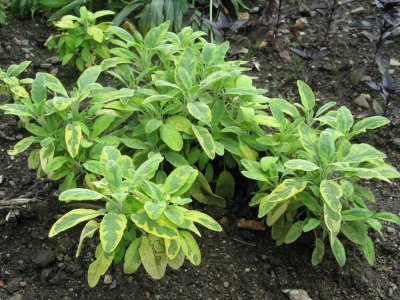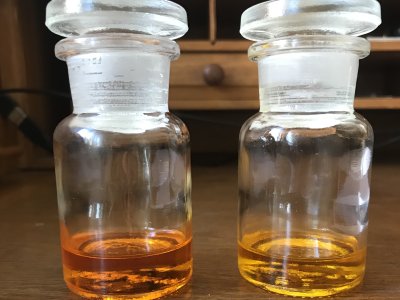AROMATHERAPY BLOGS
Education and training/
17.02.24

AROMATHERAPY BLOGS 1
Recompiled from 3 older articles
Most of the blog type sites use various social media platforms. Never rely on
such blogs for accurate information.
The majority of these blogs are in the total control of whoever set them up.
They will delete any negative comments from those who know better than
themselves. Some blog owners will even privately castigate an individual for
posting comments they do not like, or just block their access to the blog.
Large numbers of these blogs are run by untrained and inexperienced people,
yet they give all kinds of advice on health issues. They may be selling
attractive products, but often these are made at home with no safety
assessment or consumer safeguards - particularly in the USA.
Many of these social media sites are used to fool the public into purchasing
poor quality products and services. The owners get friends and customers to
constantly post messages about “how wonderful the products and services
are”. These can look incredibly convincing but the whole system is just
marketing and most people are sucked in by it. Newcomers do not have a clue
that what is being sold is quack medicine cures and lousy courses at
hugely inflated prices. Also some dangerous information is put on these
sites and often their information is gleaned from other dubious blogs.
Another problem I have noticed is that some link from a blog to an essential oil
supplier. Some suppliers sites look so spiritual that people then believe
everything they say. Some of the sites I have come across contain many
essential oils on which there is no known safety data see 'hyped oils' in the
index and their therapeutic effects have been invented. Beware of those talking
about 'oils with high energies' this is nothing but marketing hogwash designed
to lure the gullible. Beware of those claiming they only deal direct with artisan
farmers; this is most unlikely for all the oils they sell. That is not the way the
real essential oil trade works. There are now many blogs and web sites
set up just to make money via links to Amazon shops and oil suppliers.
People are putting themselves at risk of harm by following blog sites and using
the information provided. I would urge my readers to look at the other articles
on this site and in particular take note of claims which are taken from the
traditional use of the herbs and not the essential oils. If you see such claims
this will indicate someone who does not know the subject.
You should also look at the auto connections being made by watching the
toolbar at the bottom of your browser. If there are a lot, then you can be pretty
sure the site is making money from those links and that may be the only
reason for its existence. You will find most blog sites use these autolinks as
standard as well as dumping dozens of spying cookies onto your hard drive.
What to be on the lookout for
Contact details: Many of these blogs give no contact information. If you have
to register to post a message they and the blog provider have your email
address and name which may be sold to spammers, especially the ad.
spammers. You rarely get the blog owners email address! So look to see if
there is a business address. If no contact information is available you can be
pretty sure the site is just aimed at making money via advertising links. Those
can link to the biggest scam artists on the Internet.
Training: Look to see if the individual running the blog gives information on
what training they have had. Check the schools web site and see what claims
are being made. Look in my articles archive and book reviews for information
on common errors which give indications on if the training provider knows
what they are talking about, or they just parrot common trade myths.
Advice on health issues: Look if the blogger is giving replies on major health
problems. If they are, question their training and origin of their knowledge. Do
they have links to multi level businesses - that alone should warn you off.
Check them out: Use search engines to check on the bloggers name. Also
search for the business or product name and add the word 'scam' after it. That
may tell you if others have been dissatisfied.
Which oils do they promote: If they link to essential oils sellers, look for things
such as expressed bergamot; lime and cinnamon bark oils being sold without
any safety warnings. Look to see what medicinal claims are being made and
bear in mind most such claims are illegal in the USA and Europe even though
many still make them.
Please also read the article 'Internet sales'.
Most of the blog type sites use various social media platforms. Never rely on
such blogs for accurate information.
The majority of these blogs are in the total control of whoever set them up.
They will delete any negative comments from those who know better than
themselves. Some blog owners will even privately castigate an individual for
posting comments they do not like, or just block their access to the blog.
Large numbers of these blogs are run by untrained and inexperienced people,
yet they give all kinds of advice on health issues. They may be selling
attractive products, but often these are made at home with no safety
assessment or consumer safeguards - particularly in the USA.
Many of these social media sites are used to fool the public into purchasing
poor quality products and services. The owners get friends and customers to
constantly post messages about “how wonderful the products and services
are”. These can look incredibly convincing but the whole system is just
marketing and most people are sucked in by it. Newcomers do not have a clue
that what is being sold is quack medicine cures and lousy courses at
hugely inflated prices. Also some dangerous information is put on these
sites and often their information is gleaned from other dubious blogs.
Another problem I have noticed is that some link from a blog to an essential oil
supplier. Some suppliers sites look so spiritual that people then believe
everything they say. Some of the sites I have come across contain many
essential oils on which there is no known safety data see 'hyped oils' in the
index and their therapeutic effects have been invented. Beware of those talking
about 'oils with high energies' this is nothing but marketing hogwash designed
to lure the gullible. Beware of those claiming they only deal direct with artisan
farmers; this is most unlikely for all the oils they sell. That is not the way the
real essential oil trade works. There are now many blogs and web sites
set up just to make money via links to Amazon shops and oil suppliers.
People are putting themselves at risk of harm by following blog sites and using
the information provided. I would urge my readers to look at the other articles
on this site and in particular take note of claims which are taken from the
traditional use of the herbs and not the essential oils. If you see such claims
this will indicate someone who does not know the subject.
You should also look at the auto connections being made by watching the
toolbar at the bottom of your browser. If there are a lot, then you can be pretty
sure the site is making money from those links and that may be the only
reason for its existence. You will find most blog sites use these autolinks as
standard as well as dumping dozens of spying cookies onto your hard drive.
What to be on the lookout for
Contact details: Many of these blogs give no contact information. If you have
to register to post a message they and the blog provider have your email
address and name which may be sold to spammers, especially the ad.
spammers. You rarely get the blog owners email address! So look to see if
there is a business address. If no contact information is available you can be
pretty sure the site is just aimed at making money via advertising links. Those
can link to the biggest scam artists on the Internet.
Training: Look to see if the individual running the blog gives information on
what training they have had. Check the schools web site and see what claims
are being made. Look in my articles archive and book reviews for information
on common errors which give indications on if the training provider knows
what they are talking about, or they just parrot common trade myths.
Advice on health issues: Look if the blogger is giving replies on major health
problems. If they are, question their training and origin of their knowledge. Do
they have links to multi level businesses - that alone should warn you off.
Check them out: Use search engines to check on the bloggers name. Also
search for the business or product name and add the word 'scam' after it. That
may tell you if others have been dissatisfied.
Which oils do they promote: If they link to essential oils sellers, look for things
such as expressed bergamot; lime and cinnamon bark oils being sold without
any safety warnings. Look to see what medicinal claims are being made and
bear in mind most such claims are illegal in the USA and Europe even though
many still make them.
Please also read the article 'Internet sales'.
741
More posts


